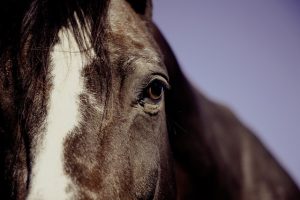By NewsDesk @infectiousdiseasenews
On Friday, Ohio Department of Agriculture State Veterinarian Dr. Tony Forshey confirmed one case of Eastern Equine Encephalitis (EEE) in a horse in Ashtabula County and is urging horse owners to contact their veterinarian to ensure the animal’s EEE vaccine and boosters are up to date.

“This is a serious disease and the most effective way to prevent your horses from getting EEE is to have the animals vaccinated by a licensed veterinarian,” said Dr. Forshey. “It is spread through mosquitoes and can also affect people, so taking steps to manage the mosquito population, such as eliminating standing water, will also help prevent EEE and other vector-borne viruses, like West Nile virus.”
The virus responsible for EEE is transmitted to horses by mosquitoes and attacks the animal’s central nervous system. In horses, onset is abrupt and usually fatal. Symptoms include unsteadiness, erratic behavior, a marked loss of coordination and seizures. Horses are particularly susceptible but the virus can also cause serious illness in people as well as other animals such as poultry and deer.
Because EEE can also be transmitted to humans by the bite of infected mosquitoes, animals sick from EEE are a sign that people should also take steps to guard themselves against mosquitoes by applying repellent and wearing protective clothing. The disease is very rare in humans, and only a few cases are reported in the United States each year. There are no confirmed human cases associated with this outbreak in Ohio.
- Dengue epidemic: More than 70K cases in Bangladesh
- Spain Listeria outbreak: More than 200 cases, 3 deaths
- West Nile virus: 1st cases reported in Montana this year
- Measles outbreak grows in Auckland
- Rhode Island reports 1st human Eastern Equine Encephalitis case since 2010
- Outbreak News Across the Globe, Episode 2
- Canada: Syphilis rising in Ottawa
- Las Vegas: More West Nile virus, Hepatitis A exposure


